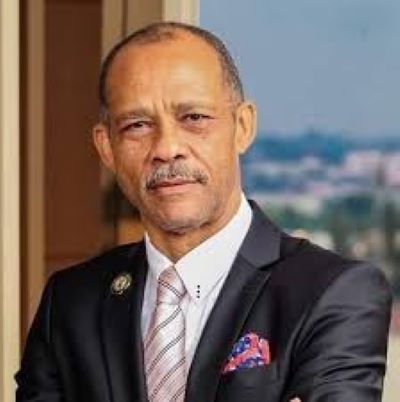In a bid to combat maternal mortality and improve access to emergency healthcare services in hard-to-reach and underserved areas in Lagos, the Ministry of Health and the National Emergency Medical Service and Ambulance System (NEMSAS) have joined forces under the Rural Emergency Services and Maternal Transportation (RESMAT) programme.
This World Bank-funded initiative aims to deliver critical emergency medical services to rural communities, bridging healthcare gaps that often put maternal and infant lives at risk.
Speaking at a high-profile advocacy and stakeholders’ engagement meeting, the NEMSAS team lead and Resource Person, Dr. Prosper Ahworegba, noted that the REMSAT programme is dedicated to advancing emergency healthcare and maternal transportation in Lagos State. Accompanying him were the NEMSAS Claim Officer, Mrs. Joke Dada, and External Consultant, Mr. Williams Gerlong, who explained that the visit was aimed at providing insights into RESMAT’s objectives and fostering collaborative efforts to enhance rural emergency medical services.
Dr. Ahworegba presented a detailed briefing on RESMAT, emphasizing the need to address disparities in maternal and child health to reduce high mortality rates, particularly in rural settings. He added that RESMAT is structured to establish a sustainable emergency medical transport framework for pregnant women and vulnerable groups in underserved communities.
He explained that the advocacy visit underscored the urgent need for rural emergency medical services (EMS) as part of Nigeria’s efforts to achieve Sustainable Development Goal 3 on good health and well-being. Dr. Ahworegba highlighted that the lack of EMS infrastructure and transportation options exacerbates maternal mortality and health risks, making the RESMAT initiative, backed by President Bola Ahmed Tinubu’s administration, pivotal for achieving universal health coverage.
He outlined RESMAT’s six-pillar model focusing on governance, advocacy, quality monitoring, dispatch systems, skills improvement, and financing. “This approach aims to develop a robust EMS system for rural populations, with Lagos among the 15 states selected for World Bank support. The programme anticipates benefiting 1.7 million pregnant women in Lagos by December 2025,” he said.
Dr. Ahworegba also described RESMAT’s three-stage operations model that employs community resources like tricycles and boat ambulances to address maternity emergencies promptly. He stressed that this community-based transport model empowers local populations to access life-saving services during critical moments.
NEMSAS plans a four-step approach to advocacy and behavioral change, engaging community leaders to foster acceptance of emergency services. Training frontline health workers and community first responders will be central, with programs such as Basic Emergency Care (BEC) and Community First Aid Response (CFAR) equipping workers with life-saving skills.
Responding, the Special Adviser to the Lagos State Governor on Health, Dr. (Mrs.) Kemi Ogunyemi, commended NEMSAS for the initiative, highlighting its alignment with Lagos State’s efforts to reduce maternal and infant mortality rates. She pointed to the challenges posed by rapid population growth, healthcare demand, and transportation barriers in riverine and rural areas.
In his remarks, the Commissioner for Health, Prof. Akin Abayomi, highlighted the importance of resilient infrastructure, noting that several LASAMBUS stations were upgraded to permanent structures. He emphasized that durable facilities are critical to maintaining uninterrupted emergency services.


